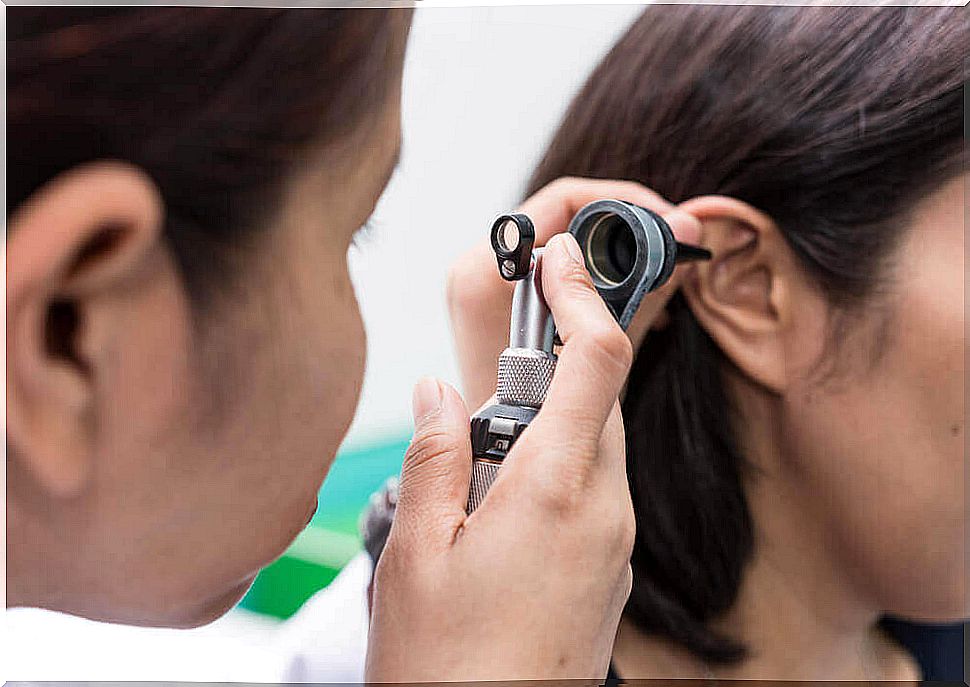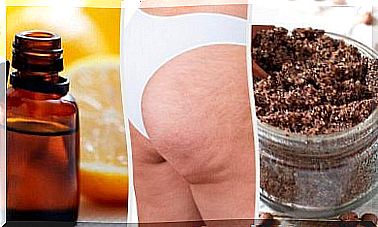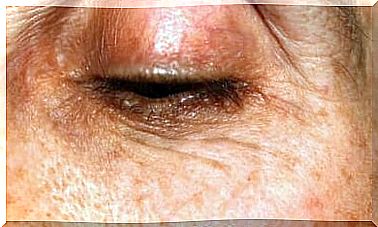Natural Plant Remedies For Deafness And Earache

Deafness is characterized by a total loss of hearing. With hearing loss, your hearing deteriorates, but you can still hear something, while deafness occurs when you can no longer perceive sound at all.
In this article we will give you a little more explanation about this condition, which is sometimes also associated with ear pain. We also show you some natural plant remedies for deafness and earaches.
Some of these remedies have already been researched, but much more evidence is needed. Therefore, you should use common sense and always consult a doctor before turning to supplemental natural treatments.
Causes
Deafness has many causes. Some can be cured and others unfortunately cannot. Below are the most common causes, with a clue as to how serious they are:
- Things that block the ear canal, such as water and earwax. Usually this is easy to solve.
- Fluid in the middle ear (pus) due to an acute illness. If you don’t neglect it for too long, you can intervene in time.
- Lack of air in the middle ear due to a blockage of the Eustachian tube. This could be the result of swollen tonsils, exposure to the cold, or a mucosal disorder. Without treatment, the eardrum will begin to retract inward. Fortunately, there is a treatment.
- Arterial hardening of the blood vessels of the inner ear, causing necrosis or dead nerve endings.
- Inflammation of the auditory and vestibular nerve or acute neuritis.
- Destruction of the nerve by poison, such as quinine.
- A ruptured eardrum leaves a permanent perforation. The hearing loss may be only partial.
As soon as you realize that you have hearing problems, you should consult a doctor, preferably an ENT or hearing care professional. He or she will examine you carefully.
Symptoms
The symptoms indicative of deafness can usually be verified easily and without much difficulty. Some examples:
- You have to concentrate very hard to hear what others are saying or you ask very often if they can repeat what they have said.
- A whistle in your ears.
- Itching due to the presence of fluid in the ears.
- Strong pain can also occur in the most severe cases. This is mainly associated with damaged nerve endings.
When there is a sudden hearing loss, the person notices that “gaps” of silence begin to exist between what he or she hears.
In children, the signs of suspected congenital deafness include:
- Difficulty learning to speak
- Learning disabilities
- Changes in their behavior
Complications

This is a problem that can have a very big effect on your quality of life. The most commonly identified problems among adults due to deafness are:
- Depression
- Fear
- The feeling that other people are mad at you
It is very common for most people who suffer from hearing loss or deafness to live with these problems for years before seeking treatment.
Some people never seek help, which can cause problems for their family members or colleagues at work.
Tips
- It is advisable to avoid very loud noises. Music should not be louder than 110 decibels, as exposure to such loud noise can cause early hearing loss.
- You should not put any foreign objects or substances in your ear, as they can push the wax in and damage the eardrum.
- Clean only the outer part of the ear with a piece of gauze or towel. Do not insert your fingers to clean or scratch your ear.
- Great care should be taken when practicing contact sports, as they can cause trauma to the ear and cause hearing problems.
- In case of continuous exposure to noise, you should use hearing protectors.
Try these natural plant remedies for deafness and earache
1. Marjoram
In a 2015 study, marjoram was tested along with many other plant remedies for deafness and earaches. For example, the leaves of marjoram could help against earaches in particular.
They are traditionally used by people in the Middle East who are convinced of the effect.
However, the research seems to say nothing about the actual properties of marjoram in particular and emphasizes that more research is needed.
Ingredients
- 1 tablespoon marjoram (15 g)
- 1 cup of water (250 ml)
Preparation
- Bring the water to a boil in a pan.
- When the water reaches boiling point, add the marjoram, put the lid on the pan, and let it sit for 2 minutes.
- Remove the pan from the heat and let it stand for 5 minutes.
- It is recommended to drink two cups daily.
2. Onions

According to an article from Informed Health Online , onions are known as a remedy for many parents trying to treat earaches in their children.
However, the effects have not yet been scientifically proven. The article does state that onions seem to help some people. This is probably a placebo effect.
Ingredients
- 1 onion
- 4 cups of water (1 liter)
Preparation
- Finely chop the onion and place it in a bowl.
- Add the water.
- Let it steep for 12 hours before drinking the onion juice so that it is well concentrated.
- Drink it three times a day.
3. Garlic

According to 2016 research, the antioxidants in garlic may help reduce inflammation in the ear.
In addition, the same study showed that garlic derivatives have a weakening effect on deafness. In other words, the hearing loss would become less severe after 25 days of treatment.
Ingredients
- 1 clove of garlic
- 1 tablespoon olive oil (15 ml)
Preparation
- Grind the garlic well until you get a kind of paste.
- Heat the oil in a pan and add the garlic.
- Flatten everything with a spoon to release the extracts.
- With a dropper, put three drops in each ear.
- You can repeat the remedy several times a week.
4. Ginkgo biloba

A 2000 Indian study reportedly found that ginkgo biloba had a better effect than conventional treatments for hearing loss and hearing problems such as tinnitus. No significant side effects were noted.
At first glance, however, that research shows that there is no link between medicinal substances in the plant and the results. Therefore, ginkgo biloba may also act as a placebo rather than a plant remedy for deafness.
Ingredients
- 1 tablespoon ginkgo biloba (15 g)
- 1 cup of water (250 ml)
Preparation
- Bring the water to the boil in a pan and add the tablespoon of ginkgo biloba.
- Put the lid on the pan and let it steep for 5 minutes.
- It is recommended to drink one cup a day.
Ear pain or hearing loss may be most common in the elderly, but it remains a problem that we can all face. Therefore, you must take good care of these vital senses. That will benefit you in the long run.
You’ve probably also noticed that these plant remedies for deafness aren’t real ‘miracle cures’, but rather seem to work with a placebo effect, or are based on certain traditions. Much more research is needed to come up with hard evidence.
That is why a visit to your GP, ENT specialist or hearing care professional is always the wisest option.








